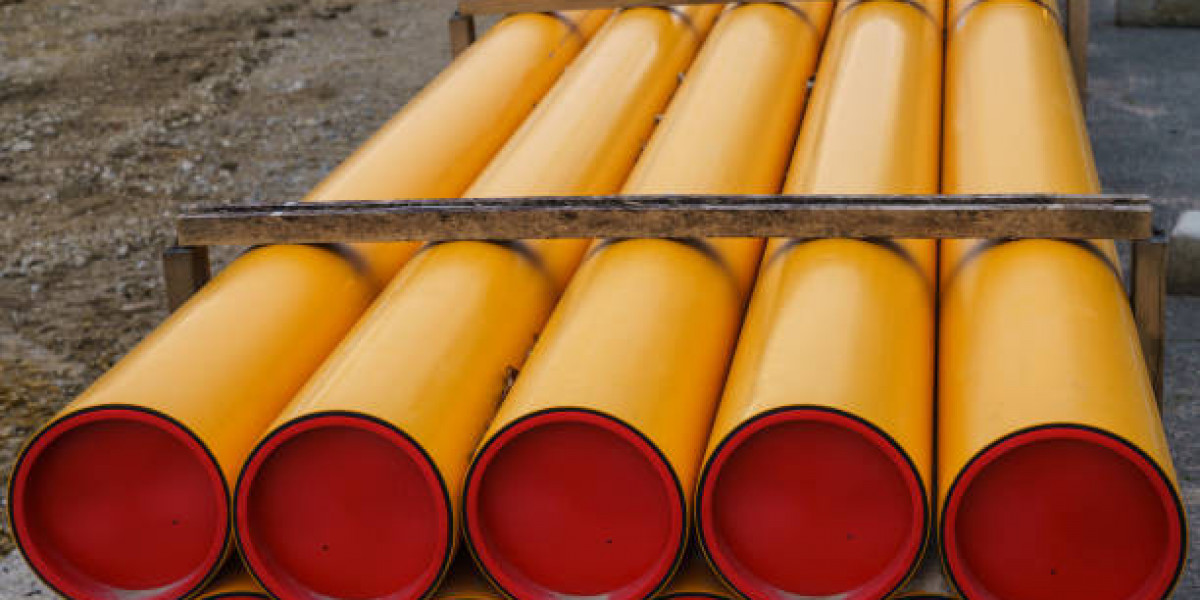In industrial environments, the choice of piping system plays a critical role in ensuring both safety and efficiency. Factories, chemical plants, oil refineries, and power stations rely heavily on piping to transport fluids, gases, or hazardous materials. Among the many options available, double-wall pipes have become increasingly important due to their unique structure and superior performance. Unlike traditional single-wall systems, double-wall pipes are engineered with an additional protective layer that significantly enhances durability, safety, and reliability in demanding conditions.
This blog explores why double-wall pipes are preferred in certain industrial applications, highlighting their structural benefits, safety features, and long-term economic value.
Understanding Double-Wall Pipes
A double-wall pipe consists of two concentric layers: an inner pipe that carries the fluid or gas and an outer protective pipe that provides secondary containment. The space between these walls often acts as a buffer zone that can be monitored for leaks, pressure changes, or contamination.
This unique design makes double-wall pipes an advanced solution where the stakes are high — whether it’s handling flammable chemicals, high-pressure gases, or corrosive materials.
Enhanced Safety and Leak Prevention
Safety is the foremost reason industries choose double-wall pipes. In hazardous environments, even a minor leak can cause accidents, health risks, or environmental damage. The double-layer structure minimizes this risk.
If the inner wall fails, the outer wall acts as a backup containment system, preventing dangerous fluids or gases from escaping. Many systems also feature monitoring sensors in the interstitial space, allowing for early detection of leaks before they escalate into serious problems.
This proactive safety feature makes double-wall pipes a mandatory choice in industries dealing with toxic, corrosive, or combustible substances.
Durability in Harsh Conditions
Industrial operations often expose pipes to extreme conditions such as high temperatures, pressure variations, mechanical stress, and chemical exposure. Single-wall pipes may degrade faster in such environments, but double-wall designs provide an added layer of durability.
The outer wall protects the inner wall from external damage, such as physical impacts or environmental factors like UV radiation and soil corrosion in underground installations. This durability ensures longer lifespans and fewer replacements, reducing both downtime and maintenance costs.
Compliance with Environmental and Safety Regulations
Modern industries operate under strict environmental and safety regulations. Whether it’s preventing chemical leaks into soil and groundwater or ensuring worker safety, compliance is non-negotiable.
Double-wall piping systems help industries meet these requirements by providing secondary containment. This design often complies with local and international safety standards, making it easier for businesses to pass inspections and avoid penalties.
Cost-Effectiveness in the Long Run
At first glance, double-wall pipes may appear more expensive than single-wall alternatives due to their complex design and additional materials. However, when evaluating long-term costs, they often prove to be more economical.
Fewer leaks mean lower cleanup costs, reduced insurance premiums, and minimal disruption to operations. The extended lifespan and reduced need for frequent replacements also make them a wise investment for industries looking for sustainable and cost-effective solutions.
Versatility Across Industrial Applications
Double-wall pipes are not restricted to a single sector; they are widely used across multiple industries, including:
Chemical plants – for transporting corrosive or toxic chemicals.
Oil and gas facilities – to handle combustible fuels under high pressure.
Pharmaceutical manufacturing – ensuring contamination-free transport of sensitive materials.
Food and beverage industry – providing hygienic and safe transport of liquids while minimizing risk of contamination.
Power plants – handling steam, cooling water, and other critical utilities.
This versatility highlights their role as a universal solution for industries with high safety and reliability demands.
Technological Advancements in Double-Wall Pipes
With the rise of modern manufacturing techniques, double-wall pipes have evolved beyond traditional steel structures. Today, they are available in a variety of materials, including high-density polyethylene (HDPE), stainless steel, and composite materials, depending on the industry’s needs.
Some systems are also designed with built-in monitoring sensors, making it easier for operators to track leaks, temperature, or pressure changes in real time. These smart technologies add another layer of efficiency and security to double-wall piping systems.
A Reliable Choice for Modern Industries
Given the risks, regulatory requirements, and demands of industrial environments, it’s no surprise that double-wall pipes are considered the gold standard in many applications. They provide peace of mind by combining safety, durability, and compliance, making them an indispensable choice for industries handling hazardous or high-pressure materials.
In this context, companies like Plasco Pipes continue to provide modern piping solutions that align with industry needs. Their expertise and reliable products ensure that businesses not only meet compliance standards but also achieve long-term efficiency and safety in operations.
Conclusion
Double-wall pipes stand out as a reliable, safe, and long-term solution for industries where precision and protection are crucial. Their ability to prevent leaks, withstand harsh conditions, and comply with stringent safety standards makes them a preferred option across multiple sectors. While the initial investment may be higher, the long-term benefits in cost savings, reliability, and compliance make them invaluable in industrial applications.














